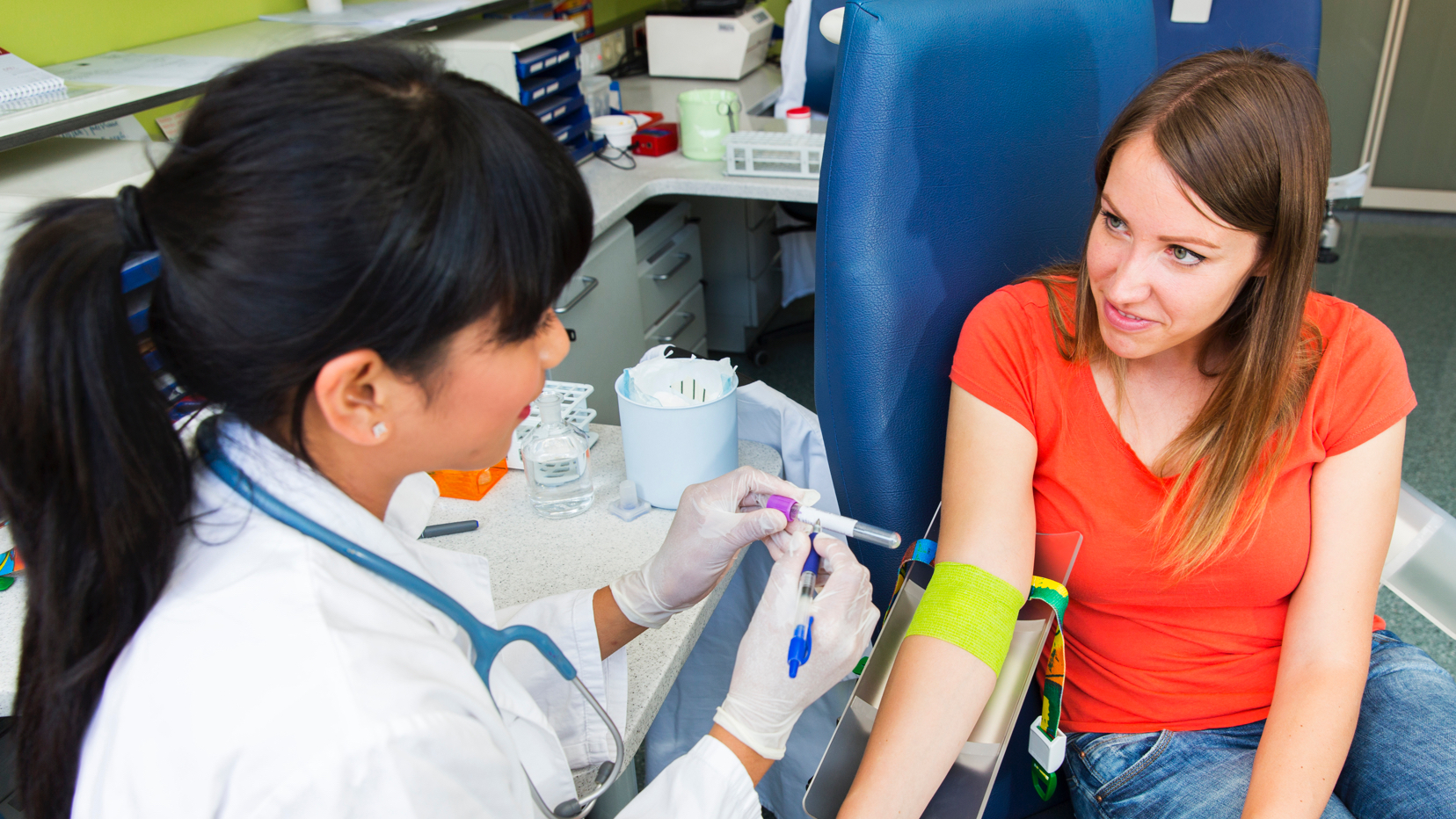
As the leading global funder of type 1 diabetes (T1D) research, Breakthrough T1D invests in the most promising research studies across the world—including more than 70 clinical trials happening right now—to help improve the lives of people with T1D and find cures. That’s a big deal!
Let’s take a look at three of them:
A clinical trial to prevent eye disease
Breakthrough T1D played a critical role in supporting the research and clinical studies that led to the approval of anti-VEGF eye therapies, which promote the growth of new blood vessels under the retina in people with T1D experiencing diabetic eye disease. Now, Breakthrough T1D is funding a phase III clinical trial to test if anti-VEGF therapy can prevent vision loss entirely. If the therapy works, it could help to reduce future potential treatment burden in people with T1D, resulting in better long-term visual outcomes if diabetic eye disease can be prevented.
The trial is active, but not recruiting, and preliminary results are expected in mid-2020.
An immune therapy drug moves to a phase III trial
For the first time ever, an immune therapy treatment, called teplizumab, was able to significantly delay—for over two years—the onset of T1D in participants with a high risk of developing the disease. Teplizumab is now being tested in a phase III clinical trial in people recently diagnosed with T1D, sponsored by Provention Bio, a company with an investment from the Breakthrough T1D T1D Fund. If successful, this could become an approved therapy that modifies the very course of this disease.
It is recruiting at 32 locations. If you or a loved one are within six weeks of a T1D diagnosis, contact Eleanor Ramos, M.D., the chief medical officer at Provention, at 908-356-0514 or at eramos@proventionbio.com.
A triple therapy for better T1D management
Right now, insulin is the only effective treatment for T1D—and while it has significantly improved T1D management, blood-sugar control is still a challenge for many people living with this disease. A new triple therapy involving insulin and two drugs proven to lower HbA1c levels, GLP-1 and SGLT, strives to help reduce blood-sugar fluctuations. Now in the clinical trial phase, this innovative therapy may soon be a viable T1D management option.
The clinical trial is recruiting at the State University of New York at Buffalo, and will involve 114 participants. If you are interested in participating, please call Jeanne Hejna at 716-535-1850 or jeannehe@buffalo.edu.
Breakthrough T1D T1D Clinical Trials Connection
If you want to find a trial that you might be eligible for, Breakthrough T1D has an easy-to-use tool called the Clinical Trials Connection. It asks users some simple questions about themselves before matching them with trials for which they are eligible. Clinical Trials Connection uses your city, distance you’re willing to travel and other characteristics to narrow down hundreds of trials to the ones in which you might be interested.